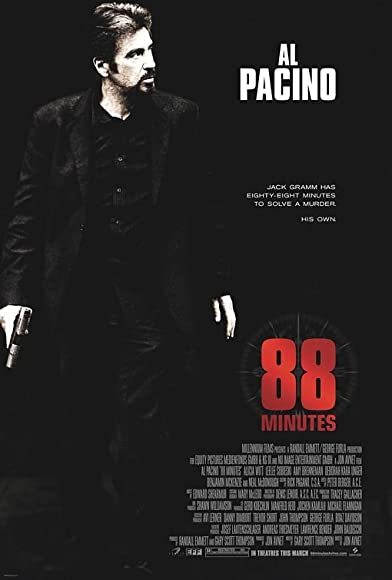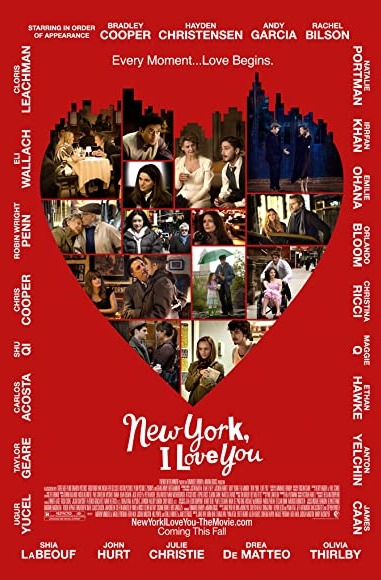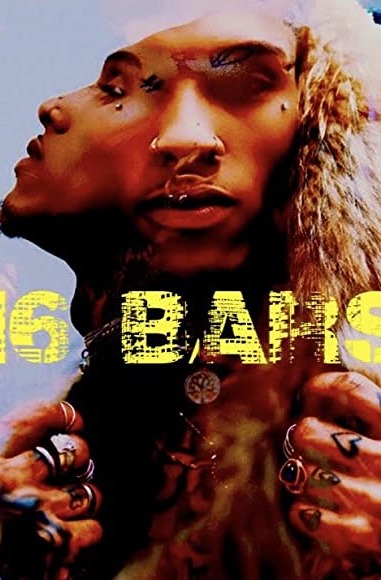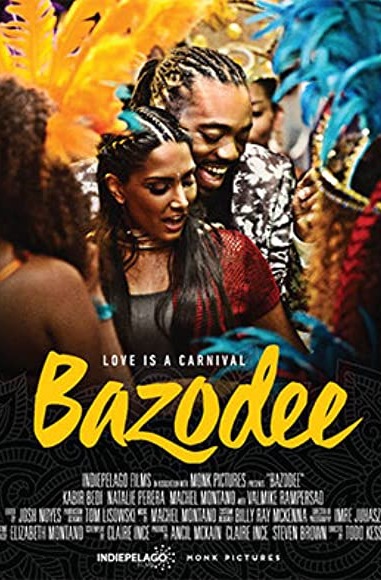Producing Low Budget Films


Webinar hosted by: Susanne Bohnet
CEO, Serafini Releasing
Susanne Bohnet is a producer who has worked on hundreds of films under $2MM. She was previously heading the U.S. office of Equity Pictures (Equity Pictures has been the second largest film fund in Germany). During her time with Equity Pictures, the company's annual investments grew from USD $30 million to USD $200 million. Ms. Bohnet worked with Equity Pictures on films with budgets between USD $2 million and USD $80 million. Prior to managing funds with Equity Pictures, Ms. Bohnet was S.V.P. of Taunus Film in Germany, where What Women Want (starring Mel Gibson and Helen Hunt) became the company's most successful Hollywood endeavor generating over $300 million of box office. and ancillary revenue. Mrs. Bohnet is a regular speaker at conferences, has spoken at the UN, was a consultant to create the Dubai Film Festival, has consulted for the Government of Trinidad and Tobago for many years assisting in building a film ecosystem and has lectured film, film-finance and business classes for many years as stand alone modules especially in emerging markets as the Middle East and the Caribbean and for financial institutions. Mrs. Bohnet holds a MBA degree in Media Economics from the Film/Media Academy in Cologne and a bachelor in Film from University of Dortmund. Full Bio »
Webinar Summary
Your goal as a filmmaker or producer is to make your project more financially attractive to investors over everyone else presenting projects to them. What many filmmakers and producers don't know is that there's a "sweet spot" in a film budget range that will help you raise funds successfully and get the ROI your investors are looking for. Setting the budget for your feature film below $2 million opens up a variety of options for you to be able to attach the talent you're looking for, the distribution you need and make your investors money. But first, you have to understand the financial blueprint to get you there.
For many independent film producers and filmmakers, approaching financiers and securing financing for your project presents one of the biggest challenges in the entire filmmaking process. How do you build your team, bring in development funds, attach name talent and work with rebates, sales estimates, and distribution to attract financing, all while compiling a plan to mitigate your financial risk? It can be overwhelming for a producer, especially given the ever-changing landscape and the increasingly competitive nature of independent film.
Susanne Bohnet is a producer who has worked on hundreds of films under $2MM. She was previously heading the U.S. office of Equity Pictures (Equity Pictures has been the second largest film fund in Germany). During her time with Equity Pictures, the company's annual investments grew from USD $30 million to USD $200 million. Prior to managing funds with Equity Pictures, Ms. Bohnet was S.V.P. of Taunus Film in Germany, where What Women Want (starring Mel Gibson and Helen Hunt) became the company's most successful Hollywood endeavor generating over $300 million of box office and ancillary revenue. Susanne has worked on countless productions under $2MM and is here with the Stage 32 community to share her knowledge.
Through this webinar, you'll receive the tools to approach your film from the investor's point of view so you can not only get the money you need for your project but, most importantly, how your investors can get that money back with profits. You'll be able to build a team around your project that will make investing more attractive and assure you don't make mistakes when you go after funding. You'll know the type of funding available to you and how to approach the investors attracted to and interested in every kind of financing. You'll dissect how to get agents on your side to attach talent to your project and how to work with attorneys. You'll also know the most effective distribution options for this type of film budget.
Give yourself the competitive advantage to understand the investors you need to approach, how to approach them, how to get talent attached, and, ultimately, how to get your film made, distributed, and profitable, so your investors return again and again!
What You'll Learn
- Script is King: You need a good script to make a good movie
- What to avoid to increase the budget, yet ensure a solid script that can deliver a cinematic execution
- Pitfalls to avoid during script development for an ultra-low-budget film
- The freedom to develop as you please with no oversight
- Do's and Don't's for Development
- Studio/ Streamer versus the low budget independent indie route
- Understanding your genre and your audience
- How to incentivize and recruit top tier Above and Below-the-Line attachments
- Development Funding
- You will need it, you need money to make money, the business of first money in and first money out
- Packaging
- How to build a strong talent package that caters to your audience
- Dealing with talent reps/ agents
- Common terminology, lingo, ie. pay and play, first out...
- Production Funding, Production, and Post Production
- Funding strategies and methods
- Soft Money
- Working with a reputable line producer being in charge of the budget
- Innovative ways of producing your film
- Pitfalls
- Do's and don't's during post
- Music Supervisor and Licencing
- soundtrack
- Waterfall of a Film and Projected Revenues, Timing and Priority
- Who gets repaid when
- How does the revenue cycle break into all the ancillary markets
- Dynamic between the investor and the producer
- Executive Producers (Investors) expectations and involvement
- Executive and additional Producer on the talent side
- Tax Incentives, Rebates, and on Screen Credits
- Understanding how to monetize them
- On-Screen Credits
- Who deserves what credit
- Distribution Options for your Film
- Outline of the current distribution landscape
- Analyzing the core demographic for your film
- International vs. Domestic
- Streamers versus the independent festival router
- US Theatrical Opening
- How to attain a US theatrical release
- Print and Advertising (P and A) spend
- Who are the current players, what are they looking for
- US Sales Agent
- Marketing and Distribution Strategy
- Pitfalls in entering into a deal with a major player
- Incentives and Add On's
- Cameos
- Product Placement and Integration
- Favors and Barters
- If it's free, that's good too!
- First Time Director/ Producer
- ways to strengthen and support such
- Business Team
- How to find a credible and affordable attorney
- Advisors/ Consultants
- When to bring on a Publicist
- Domestic/ Foregin Sales Agent
- Bank (monetize tax credit)
- Accounting firm
- Collection agent
- Q&A with Susanne
About Your Instructor

Susanne Bohnet
FAQs
Q: How do I watch my webinar live?
A: If you received a confirmation that your webinar is on Go to Webinar, you will receive an email from Go to Webinar with further instructions for participating in the live webinar. You can also access your webinar link in your purchase history located under settings in the top right-hand corner of your Stage 32 profile.
If you received a confirmation that your webinar is on Zoom, you will receive a separate email from Zoom with further instructions for participating in the live webinar. Your login link will not be in your Stage 32 profile. If you did not receive your link via Zoom please email support@stage32.com.
Q: How do I watch my webinar on demand?
A: You will be able to watch your webinar on demand as many times as you’d like inside your Stage 32 profile. The recording is processed and posted between 24-48 hours after the webinar concludes. You can follow the instructions below.
YOU MUST HAVE A STAGE 32 PROFILE TO WATCH YOUR VIDEO – STAGE 32 IS FREE TO JOIN
If You Already Have a Stage 32 Profile:
- Log into your Stage 32 profile
- Click "Settings" in the top right-hand corner (gear icon)
- Click "Purchase History"
- Choose this webinar and click the link to view
- Go to www.stage32.com
- Create a profile using the SAME email address you used to sign up for this webinar. The email addresses must match in order to watch the webinar.
- Once you have your profile set up, you can view the webinar by clicking "Settings" in the top right hand corner (gear icon)
- Click "Purchase History"
- Choose this webinar and click the link to view
Q: What is the format of a webinar?
A: Stage 32 Next Level Webinars are typically 90-minute educational broadcasts that take place online using a designated software program from Stage 32. Your webinar will be taught by a working industry professional with in-depth teaching on a topic. If you are able to attend live you will be able to ask your Stage 32 Educator questions during Q&A.
Q: What are the system requirements to watch my webinar live?
A: You will need to meet the following system requirements in order to run the webinar software: Windows 7 or later Mac OS X 10.9 (Mavericks) or later.
If you have Windows XP, Windows Vista and Mac OS X 10.9 (Mountain Lion): The webinar software does not support these operating systems. If you are running one of those operating systems, please upgrade now in order to be able to view a live webinar. Upgrade your Windows computer / Upgrade your Mac computer.
Q: What if I cannot attend the live webinar?
A: If you cannot attend a live webinar or purchase an on demand webinar, you will have access to the entire recorded broadcast, including the Q&A.
Q: Will I have access to the webinar afterward to re-watch?
A: Yes! Like all Stage 32 education, after the purchase of a live or on demand webinar, you will have on-demand access to the recording.
Q: How do I get a copy of the handouts provided?
A: If the webinar you take included handouts you can find them as downloads underneath your on demand video. You must be logged into your Stage 32 profile to view the video and get the handouts by clicking settings in the top right hand corner, then clicking purchase history.
Q: What if I need accessibility and accommodations?
A: Email support@stage32.com to request accommodations.
Thanks for your loyalty to Stage 32 Education. We value having you in the Stage 32 community.
If you have any further questions, we are always happy to help. Please contact Stage 32 support at support@stage32.com.
Relevant Tags
Share with friends:
Questions?
Other education that may be of interest to you:
How to Capture the Attention of a Showrunner or Manager with your TV Writing Samples
The global television industry is poised to create more opportunity in writers' rooms for more writers than currently exist. And literary managers will be looking for new talent and voices to sign. But to take a seat at the table, you need a solid portfolio brimming with strong writing samples. Showrunners and managers are looking for a portfolio that demonstrates your ability to tell a story in a specific voice. There’s no time like the present to prep a portfolio with hot samples, cool writing, and even cooler storylines. Showrunners need examples from you to make decisions on who to bring in the room. As an unrepresented writer, you have to demonstrate to them that you’re the one. And to do this, a series of writing samples, known as a portfolio, is a surefire way to show off your ability. You need to convince showrunners to bring you on board. If your writing samples lack luster or you don’t know where your story is headed in future seasons, conversations with managers or showrunners could be short lived. You could miss out on opportunities because your script wasn’t up to par, or your original idea wasn’t original at all. Let's make sure that never happens. Spencer Robinson is a literary and talent manager at Art/Work Entertainment who's been in the industry for over twenty years. His clients have been in films with directors Quentin Tarantino, Steven Soderbergh, Clint Eastwood, Gore Verbinski and more. In the TV world, his clients have been regular cast members on shows for Netflix, The CW, Cinemax, CBS, NBC, FX, Starz, Nickelodeon, EPIX, and TBS, to name a few. His writing clients work in both features and television on broadcast, cable, and streaming platforms. He currently has a client writing on two Netflix series, and another client who just sold a show to Amazon. He also reps a writer who currently has a project at Aggregate Films, which has a deal at Netflix. In this exclusive Stage 32 on-demand webinar, Spencer will dive deep into the kinds of TV samples writer’s should have ready, as well as exactly what managers and showrunners are looking for as they read through them. He will talk about the kinds of scripts your portfolio needs so that you shine like the crazy diamond you are. Certain elements of your script should stand out. Take useful notes as Spencer talks about these elements and helps attendees better understand the importance of solid and saleable characters. And then sit back and take in the golden nuggets he delivers on what managers and showrunners look for in a writer. If you dream of being in a writer’s room, this webinar was made for you. Praise for Spencer's Previous Stage 32 Webinar "Spencer was awesome! Super informative and detail driven - providing great insights. Packed so much into a short amount of time which I'm super grateful for!" -Eric C. "Spencer Robinson has high energy and packs a ton of information in his lecture. Most importantly Spencer gives realistic advice while encouraging writers to move forward fully informed of the terrain." -Oweeda N. "Spencer opened my eyes to how the TV world works with broadcast and streaming. What a great crash course!" -Ricki L.
How To Sell Your Network, Cable or Streaming TV Series
Learn how to sell your TV series from a top literary manager! It’s a dream of many to turn their idea for a television show into reality and actually sell their series to a network or company. And with so many shows constantly being created by more and more companies, this dream is coming true for more people all the time. As networks continue looking for new ideas, new voices, and diverse perspectives to fill up their slate, opportunities have never been greater to get your television show sold. And yet, it’s going to take more than a great idea and a great voice to get your TV series picked up. After the research, the writing, and development, there’s a lot you need to do if you want your series to get noticed and see the light of day. The truth is having a completed pilot is only half the battle. You also need to understand the current TV market and how to get that pilot seen. This can feel like a large or insurmountable task. Where do you even start? Do you call production companies? Hit up a studio? Perhaps reach out to a network? Do you need to attach a showrunner or an actor? How do you approach the next steps of trying to sell your show? These next steps aren’t easy, but there is a lot you can learn to better prepare you for the battle ahead. Antonio D'Intinio is one of the hardest working managers in the industry that represents screenwriters and directors at Circle of Confusion. He began his career at the agency APA before joining Jeremy Platt at Plattform, where you helped manage Plattform's first look deal with Amazon Studios. Antonio’s clients work across film and television, selling shows to Apple, Universal TV, eOne among others and their films have been recognized by numerous organizations and festivals including The Nicholl Fellowship, Cannes, Sundance and SXSW. Antonio has years of experience shopping and selling his clients' shows and knows what it takes for a series to find success. In this information-packed Stage 32 on-demand webinar, Antonio will teach you exactly how you can sell your TV series. He will begin by describing the general TV landscape. Then he’ll outline the players in the landscape and how they operate, including showrunners, production companies, studios and networks. He will walk through the three main seasons of broadcast network television—staffing, development, and pilot season. Antonio will share 3 approaches to setting up a TV show, which include format, pitches, original pilot, and intellectual property. Next he will delve into the concept of a TV package and how best to incorporate producers, showrunners, talent, and directors. Then he will outline how individuals get paid once a TV show is set up. He’ll explain the agent packaging fee, the producer fee, royalties, and residuals. Finally Antonio will pull the curtain back on the current marketplace and explain how many shows get bought vs. produced vs. aired vs. ordered to series. The TV landscape is murky, but Antonio will walk you through how it actually works and how you can navigate it to better your chances of getting your own television series sold. Praise for Antonio's Previous Stage 32 Webinar "Antonio really took us behind the curtain with a no B.S. approach. A straight shooter that tells it like it is. Eyes wide open for me now." - Michael K. My goal was always to be repped. And I got my wish. And it went terrible. We weren't on the same page. I didn't know what to do. After watching Antonio's presentation, my last rep and I parted ways and I was able to secure a new manager. The change has been night and day. We work together for a common goal. Thank you, Antonio! - Steven L.
Feature Film Distribution Contracts 101
Learn everything you need to know about independent film distribution contracts from an accomplished entertainment attorney who works with WME and recently worked on Ben Affleck's new film AIR with Mandalay Pictures! Plus! You will receive an exclusive checklist of the 22 terms you need to know before beginning any negotiation with a distributor and signing a contract! Seeing your film distributed to a big audience is every filmmaker's dream but how the money is actually made, and shared, all comes down to what's written in your distribution contract. So we've brought in an expert to teach you all about the complexities of feature film distribution contracts and what you should look for, and ask for, to get the best deal for you and your team. Distribution is often the point in the filmmaking process where filmmakers could lose their creative control and miss out on maximizing their financial gain. In order to protect yourself and you project, it is crucial you understand distribution and the key elements in your distribution contract. This could make or break whether you and your financiers reap rewards or never see a dime. The initial contract you receive from a distributor, in most cases, is never in your favor so it is important you know what terms can be negotiated and what to look out for in agreements. This exclusive Stage 32 webinar will share the key elements of distribution contracts and provide you with the business acumen you need before entering into any negotiation with a distributor or sales agent. Here to teach you the business and art of selling your independent feature film is accomplished entertainment attorney Larry Weinberg, who has worked with such leaders in the industry as WME, Mandalay Pictures, Lavely & Singer, Storyopolis, Sandbox TV, and more! Larry has helped his clients successfully sell their independent feature films to buyers across the industry and will teach you everything you need to know to navigate the complex world of film distribution. Larry will equip you with the knowledge of everything from how acquisitions work for studios and streamers and what distribution approach you should take based on the genre of your film, to how to approach your feature film distribution contracts and the main elements in the contract you should look out for to best protect yourself and your film. You will walk away from this webinar with the know-how to successfully navigate the legal minefield of independent feature film distribution contracts and negotiations. PLUS! Larry will provide you with an exclusive checklist of the 22 terms you need to know before beginning any negotiation with a distributor and signing a contract. Praise For Larry's Webinar: "Wonderful webinar with lots of great information, a very knowledgable instructor who presented the information in an easily-digestible manner" -Matt K. "Great introductory information on key elements on the distribution side of entertainment law. Very knowledgeable and kind instructor" -Morgan H.
How to Better Rewrite and Polish Your Feature Screenplay or Pilot
Congratulations – you’ve finished your first draft! But now comes the real work. The old adage goes that ‘writing is rewriting’ and that is absolutely true in film and television. A big part of screenwriting is learning how to receive feedback and how to implement it. Most professional writers go through numerous drafts and rounds of feedback before taking their scripts to the market. Just think about the first time you tried anything new – a new instrument, a new workout program, or a new screenplay. Unless you’re a natural, your first attempt isn’t usually your best. It’s the practice – or in this case, the rewriting – that helps you get better and will allow you to create something truly special. Too many aspiring writers think the hard work is over after the first draft. A first draft is a milestone accomplishment, but ultimately just one rung up the bigger ladder. But rewriting and polishing is not always an intuitive process – it’s hard to determine what to change or how much to change it. A big part of rewriting or polishing is learning how to listen to others, and realizing that even a solo screenplay can become a collaborative process. Steve Desmond is a WGA screenwriter whose screenplays have been voted onto the prestigious industry Black List four times in the past five years, including in 2020 with his latest script, The Saturday Night Ghost Club. He sold his sci-fi adventure screenplay, Harry’s All-Night Hamburgers, to Warner Bros in a bidding war, with an Oscar nominated producer attached. FilmNation (Arrival, The King’s Speech) hired him to adapt the Stoker-award-winning horror novel The Cabin at the End of the World. He’s also been hired to work on projects for Legendary Pictures, Sony, Blumhouse, Mandalay, and IM Global, amongst others. His short film, Monsters, that he wrote and directed, has amassed over two million views online and screened in over 100 film festivals worldwide, winning 45 awards. Steve has found his voice as a sought-after screenwriter by mastering the art of the rewrite and his excited to share what he knows with the Stage 32 community. Exclusively for Stage 32, Steve will give an in-depth and practical deep dive of the art of rewriting and polishing that you can take back to your own screenplay or pilot. Steve will share how best to utilize feedback and explain the difference between a rewrite and a polish. He will go through the psychological components of rewriting and show you how to make an effective plan to go through the rewrite process, and then how best to execute it. Next Steve will talk about how to actually trim your script by focusing on scenes and characters and how to work with producers and executives, including how to receive notes and maintain communication. He will then give you tools you can use to determine when you’re actually done. Expect to walk away with a slew of tools and ideas you can use to rewrite your own project and make it the best it can be. Praise for Steve's Previous Stage 32 Webinars: "This was fantastic. Steve offered so much insight, dozens of little nuggets that rang true or gave me pause to think of something I'd never considered before."-Ed K."Perfectly laid out, clear and concise material taught by a genial host!"-George P."Steve was fantastic. His examples and insights were on point. Thanks!"-Adam H."I made 3 pages of notes; good pertinent topics with simple fundamental answers presented. Very helpful, worth the time and fee."-Thomas W.
Stage 32 Television Workshop: Writing Jokes for Sitcoms + Participate In a Mock TV Punch Up Room
**Learn the art of TV joke writing from long time TV comedy writer Kirill Baru and participate in an actual episode punch up room, working to improve scenes from a notable TV comedy.** Jokes don’t just come out of nowhere, and their success is completely reliant on the medium. Things that are funny in conversation or in front of an audience might not be funny on a television show. This is why being “naturally funny” just isn’t enough to make a funny series with great jokes. It takes an understanding of the medium and insight into the types of jokes that work on television. It also usually takes a team of people in a punch up room setting, utilizing multiple perspectives and senses of humor to arrive at the best joke for each situation. Understanding how to find the best jokes in an episode script and learning how to operate successfully in a punch up room setting will help make your own comedy pilot funnier and can give you the tools to be a more desirable member of any TV comedy writers room. Kirill Baru is a sitcom writer and executive producer who has staffed on and sold a variety of live-action and animated comedy shows like Freeform’s BABY DADDY and the critically acclaimed animated show DAN VS. on the HUB. He’s also written and produced several comedies in the kids space, from Disney’s SYDNEY TO THE MAX to Cartoon Network’s MAD: THE ANIMATED SERIES. When Kirill isn’t staffing on shows, he’s developing projects with networks such as Disney and Netflix. He attributes his career to writing comedy that finds a way to have a lot of edge without ever losing any of its heart. Kirill is very familiar with punching up TV scripts, finding ways to make them funnier and finding success in a TV punch up room. In this special extended workshop, Kirill will teach you how to craft effective jokes for any TV comedy. He’ll break down where good jokes come from and the elements needed to make a joke work. Kirill will also lay out the main types of TV jokes you can draw from and walk you through important comedy terminology that’s used in every writers’ room and punch up room. He’ll also go through how to make jokes work with an eye towards scene construction and explain what makes a great punch up room for any TV comedy. Kirill will then lead a TV comedy punch up room, similar to how real TV comedies run them. Everyone who signs up will be able to participate in this room and work with the group to add jokes, fill in pitches, and create alt docs for two scenes of an episode of an actual notable TV comedy. Kirill will provide feedback and analysis or all of the joke pitches. If you’re interested in breaking into TV comedy, it’s so important that you know how to craft great jokes in this specific medium. This workshop is the perfect way to help you get there. Praise for Kirill's Previous Workshop "The workshop was awesome! Going through this workshop and seeing the end result produced by our team of writers (classmates), not only shed light into how the sausage is made, but also showed me that this is something I can actually do. Well worth the investment!" -Kane B. "Kirill's workshop was a great experience. He's a natural teacher, professional, insightful, and encouraging. It was not only educational but practical, allowing the attendees to punch up an actual script as if in the writer's room, followed by him, putting on his showrunner hat and reviewing what had been created by the group. I would highly recommend anyone interested in working as a professional writer, with dreams of being in the writer's room to attend one of his classes." -Dave W. "This was the best online class tv writing class I’ve ever taken. There is only so much the brain can grasp and retain in a lecture format. Kirill did an amazing job structuring the class and providing an in the moment experience — the best way to learn. Thank you." -Barbara G.
How a CAM Account Saves You Time and Worry
Filmmaking isn’t just an artform, it’s a business. As a creative, you might not be aware of how you can ensure you receive your fair share of the revenue or properly negotiate for it. With the right agreement in place, you can focus on producing a great story that audiences will love without worrying about how the money will come later. What you need is a CAM Agreement. The CAM Agreement, short for Collection Account Management, is a multiparty agreement that handles the receipt, allocation, and disbursement of revenues generated by the distribution of a project. In short, a CAM Agreement is how you get paid when the project sells. It protects everyone’s interests and eliminates misunderstandings between partners by ensuring everyone enters the project on the same page and puts everyone on a Recoupment Schedule so that you know when and how you’re getting paid. With so many platforms and distribution markets to consider, revenue is never as simple as selling the project one time. It covers payment of revenues, commissions, expenses, recoupment investments, deferments, bonuses, and profits. David Zannoni is a consultant for Fintage House, where he's seen first-hand the benefit of these agreements through his work negotiating for films and television series internationally, regularly attending the major film festivals like Cannes, Berlin, Toronto, and more. David will walk you and the other attendees of this Stage 32 webinar exclusively through the key elements of the CAM Agreement, what’s covered, standard clauses, the different kinds of CAM Agreements you’ll need for the different guilds, and how the agreement will evolve and be used in the future. By knowing the benefits of these agreements from someone who regularly uses them, you’ll have the ability to negotiate better for yourself and your project, empowering you to stress less about how you’ll make your money back and focus instead on telling a great story.










